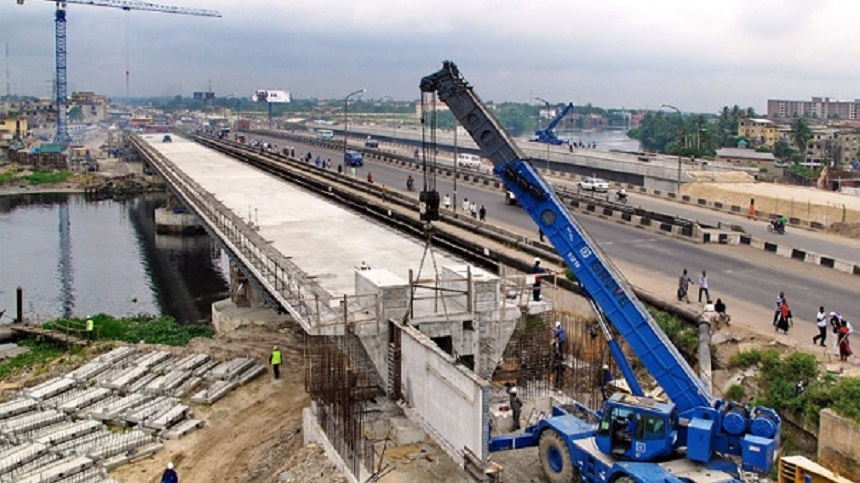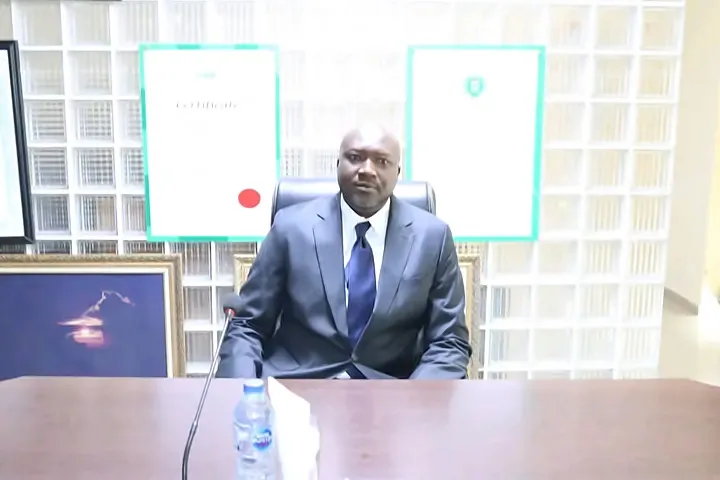General
Report Shows Shifting Patterns in Infrastructure Funding in Africa

A report by Baker McKenzie tagged New Dynamics: Shifting Patterns in Africa’s Infrastructure Funding has shown the state of the African infrastructure market and how the major global players’ approach to infrastructure lending on the continent is changing.
The study, which analysed new data from IJ Global, indicated that there has been a decline in the value of infrastructure lending in the region, which is known for its resilience and it is expected that as economies recover, new types of financing will be unlocked.
The data
The report’s data shows that multilateral and bilateral lending into Africa has declined – with investment levels falling successively in 2019 and 2020 compared to peak levels seen after the financial crisis.
In 2019, bilateral and multilateral lending into Africa amounted to USD 55 billion, which drops to $31 billion in 2020. Over the last six years, the decline is significant – deal values dropped from $100 billion in 2014 to $31 billion in 2020.
This slowdown in infrastructure investment was attributable to a number of factors, including the pandemic. The economic contraction has affected Nigeria and South Africa, meaning that the region’s largest economies have not been feeding in growth as in previous years.
However, market fundamentals signal a region with underlying resilience and, as the global economy recovers, finance will be unlocked. There are already positive indicators of forthcoming investment.
Commodity prices are rising and landmark deals are returning. For example, mining multinational Sibanye-Stillwater recently committed ZAR 6.3 billion to South African infrastructure projects.
The data also shows that deal tenor is contracting – from a high of 17 years in 2019 to 13 years in 2020. However, the long-term nature of infrastructure projects means that international partners have made lasting commitments to the region, which are unlikely to be abandoned despite immediate pressure on national finances.
China
Surprisingly, given the pandemic, the data shows that lending by Chinese banks into energy and infrastructure projects in Sub-Saharan Africa saw a small uplift in 2020, although deal values are well below their 2017 peak. In 2017, Chinese banks lent $11 billion to African infrastructure projects, which decreased to $4.5 billion in 2018, $2.8 billion in 2019 and $3.3 billion in 2020.
Simon Leung, Partner, Baker McKenzie Hong Kong, explains, “There has been a slowdown in the number of infrastructure deals from China. In the short-term, we expect to see more targeted lending – fewer projects of a higher quality using sophisticated structures – and new finance options, such as factoring, used to deploy Chinese capital into the region.”
International players
It is also clear that other international players have the region in their sights, with key political changes in the United States (US) and United Kingdom (UK) likely to see capital flow into Africa.
Michael Foundethakis, Partner and Global Head of Projects and Trade & Export Finance, Baker McKenzie Paris, notes, “The US hasn’t kept pace with Chinese lending into Africa. The recent change in administration is likely to renew focus on impact-building and financing strategic long-term projects in the region, but bankability and risk-sharing remain a priority for US lenders.”
Lodewyk Meyer, Partner, Baker McKenzie Johannesburg, notes further that, “The infrastructure funding gap is so large and of such strategic importance, it remains necessary to encourage international investment to fill it.
“African DFIs are very good at collaborating and I am encouraged by the actions of the new US administration, UK government and New Development Bank, in particular in their willingness to work with regional institutions in this regard.
“The UK is making a strong play for influence, investment and trade with Africa post-Brexit. Further to key summits held in 2020 and 2021, there are signs that finance will be redirected into Africa.”
Commercial banks
The report points to infrastructure gaps in energy provision, internet access and transportation that have resulted in an urgent imperative to identify and enable new sources of finance outside traditional lenders and international partners. Further to the expected return of multilateral and bilateral lending, there is room for evolution to bridge the funding-opportunity gap.
The report shows, however, that this vacuum is unlikely to be filled by commercial banks, noting that in 2020, just 84 projects were supported by commercial bank finance and their involvement in Development Finance Institution (DFI) and Export Credit Agency (ECA) deals continues on a downward trend.
Luka Lightfoot, Partner, Baker McKenzie London, explains, “Banks are likely to be focusing on managing liquidity, with lenders deploying capital selectively.”
DFIs and new financing solutions
Instead, local and regional banks, specialist infrastructure funds and private equity and debt are stepping in to collaborate with DFIs and access returns. This outlines the deepening DFI involvement in the infrastructure ecosystem at large, with DFIs increasingly anchoring the infrastructure ecosystem in Africa – serving a critical function for project finance as investment facilitator and a check on capital.
This is because they can shoulder the political risk and access government protections in a way that others can’t, enter markets others can’t and are uniquely capable of facilitating long-term lending.
The report explains how the amount of capital needed to fill the infrastructure gap is significant and DFIs can’t bridge it alone. Private equity, debt finance and specialist infrastructure funds are primed to enter the market, and multi-finance and blended solutions are expected to grow in popularity as a way to de-risk deals and support a broader ecosystem of lenders.
Lightfoot comments, “We expect to see an increase in non-bank activity in Africa in future as a result of new credit mitigation products come to market. We have seen an increase in appetite from established market participants, such as development banks, to create products that are not tied to existing arrangements that may have limited the type of finance available.”
A new era
Lamyaa Gadelhak, Partner and Co-head of Banking, Finance and Projects at Helmy, Hamza & Partners, Baker McKenzie Cairo, adds, “The pandemic represents the end of an era and the start of a new one. There will be a re-prioritization of funds and strategy through this lens. I expect to see more investments in the healthcare industry and connected infrastructure, as well as water-related projects, to be a top priority. We should also consider the impact of other factors aside from the pandemic.
“For instance, the African Continental Free Trade Agreement and what it needs to translate into increased cross-regional trends. I would expect the development of transportation and logistics infrastructure-focused projects to enable the acceleration of on-ground execution of intra-African trade.”
Emeka Chinwuba, Partner, Baker McKenzie New York, and Banking, Finance & Major Projects Group member, concludes, “Last year was a relatively difficult year across jurisdictions and for investors – with considerable uncertainty and change in the ways in which we do business.
“Shutdowns had a depressant effect on the infrastructure market, as deals in the pipeline were delayed and projects halted as a result of COVID-19. Full vaccination in Africa is still quite a long way off comparatively, so we can’t expect a full and fast return to normal activity. But we’ve reached the bottom, and the only way is up.”
General
NIMASA Rallies Stakeholders’ to Develop National Action Plan

By Adedapo Adesanya
The Nigerian Maritime Administration and Safety Agency (NIMASA) has pledged its commitment to provide the regulatory leadership, technical coordination, and stakeholder engagement required to successfully develop and implement a robust National Action Plan on maritime decarbonization in Nigeria.
The Director General of the agency, Mr Dayo Mobereola, made this known during the National Stakeholders’ workshop on the development of a National Maritime Decarbonization Action Plan, further describing the workshop as a critical step in actualising the Federal Government’s blue economy and climate objectives.
Represented by the Executive Director, Operations, Mr Fatai Taiye Adeyemi, the NIMASA DG underscored the significance of the IMO GreenVoyage2050 Project, a technical cooperation initiative /designed to support developing countries in implementing the IMO GHG Strategy.
According to him, the National Action Plan being developed will reflect national realities, leverage existing capacities, address identified gaps, and align with broader economic and environmental priorities of the federal government.
Mr Mobereola stressed that “this transition is not merely about compliance with international obligations, it is about safeguarding our marine environment, protecting public health, strengthening the blue economy, and ensuring that our maritime industry remains competitive and future-ready”, the DG said.
Also speaking at the event was the Technical Manager of the IMO GreenVoyage2050 Project, Ms Astrid Dispert, who highlighted that the overarching objective of the initiative is to advance a coherent and globally aligned regulatory framework to accelerate maritime decarbonization.
She also emphasised that NIMASA plays a pivotal role in driving the project at the national level.
The IMO GreenVoyage2050 Project provides technical expertise and institutional support to assist countries in developing and implementing National Action Plans that promote sustainable shipping practices, encourage investment in clean technologies, and strengthen capacity for long-term emissions reduction.
Through this collaboration, the federal government is advancing deliberate steps towards maritime decarbonization, reinforcing its commitment to global climate goals and ensuring a cleaner, greener, and more sustainable future for the sector.
General
BPP Mandates Digital Submission for MDAs From March 1

By Adedapo Adesanya
The Bureau of Public Procurement (BPP) has directed all Ministries, Departments and Agencies (MDAs) to comply with its digital submission process effective March 1.
The directive was contained in a circular signed by the Director-General of the Bureau, Mr Adebowale Adedokun, noting that the move was part of the bureau’s commitment to digital transformation and paperless governance.
It explained that the transition followed an earlier circular of Aug. 4, 2025, which introduced electronic submission procedures.
According to the bureau, it has successfully moved from physical filings to a dedicated e-mail service for document submissions and is now advancing to a more robust and integrated system.
The circular announced the inauguration of the BPP Digital Submission Portal, a web-based platform designed to enable MDAs submit procurement-related documents directly to the Bureau.
It stated that the automated platform would streamline the submission process, enhance transparency and ensure accelerated tracking of procurement-related documents and petitions.
“With effect from March 1, all MDAs will be required to use the portal to submit requests for ‘No Objection’ Certificates, approvals for ‘No Objection’ for special procurements, clarifications and status updates on submissions,” the bureau said.
It added that the portal would be hosted on the Bureau’s official website and would become fully operational from the effective date.
The bureau warned that physical submissions or manual hand-deliveries would no longer be prioritised and would eventually be rejected following the full transition to the digital platform.
It urged accounting officers to brief their procurement departments and ICT units on the development to ensure seamless processing of procurement activities from March 1.
It further advised MDAs to contact the Bureau via its official email for information on the onboarding process and integration into the portal.
The bureau emphasised that full compliance by all MDAs was required to ensure a smooth transition and avoid delays in the implementation of the 2026 fiscal year procurement processes.
General
Senate Seeks Removal of CAC Boss Hussaini Magaji

By Adedapo Adesanya
The Senate has asked President Bola Tinubu to remove the Registrar General of the Corporate Affairs Commission (CAC), Mr Hussaini Ishaq Magaji, from office.
The Senate Committee on Finance, while passing a resolution in Abuja on Thursday, accused Mr Magaji, a Senior Advocate of Nigeria (SAN), of failing to honour the Senate’s invitations to account for the finances of his agency.
“He refused on so many occasions to honour our invitation to appear before this committee.
“We have issues with the reconciliation of the revenue of CAC.
“Each time we invite him, he gives us excuses,” the Chairman of the committee, Mr Sani Musa, said as the committee passed the resolution.
CAC was part of a group of agencies that the House of Representatives Public Accounts Committee (PAC) recommended zero allocation for the year 2026, for allegedly failing to account for public funds appropriated to them.
The committee, at an investigative hearing held two weeks ago, accused CAC and some other ministries, departments and agencies (MDAs) of shunning invitations to respond to audit queries contained in the Auditor-General for the Federation’s annual reports for 2020, 2021 and 2022.
The PAC chairman, Mr Bamidele Salam, stated that the National Assembly should not continue to appropriate public funds to institutions that disregard accountability mechanisms, saying this will create fiscal discipline and strengthen transparency across federal institutions and conform with extant financial regulations and the oversight powers of the parliament.
“Public funds are held in trust for the Nigerian people. Any agency that fails to account for previous allocations, refuses to submit audited accounts, or ignores legislative summons cannot, in good conscience, expect fresh budgetary provisions. Accountability is not optional; it is a constitutional obligation,” he said.
-

 Feature/OPED6 years ago
Feature/OPED6 years agoDavos was Different this year
-
Travel/Tourism10 years ago
Lagos Seals Western Lodge Hotel In Ikorodu
-

 Showbiz3 years ago
Showbiz3 years agoEstranged Lover Releases Videos of Empress Njamah Bathing
-

 Banking8 years ago
Banking8 years agoSort Codes of GTBank Branches in Nigeria
-

 Economy3 years ago
Economy3 years agoSubsidy Removal: CNG at N130 Per Litre Cheaper Than Petrol—IPMAN
-

 Banking3 years ago
Banking3 years agoSort Codes of UBA Branches in Nigeria
-

 Banking3 years ago
Banking3 years agoFirst Bank Announces Planned Downtime
-

 Sports3 years ago
Sports3 years agoHighest Paid Nigerian Footballer – How Much Do Nigerian Footballers Earn













